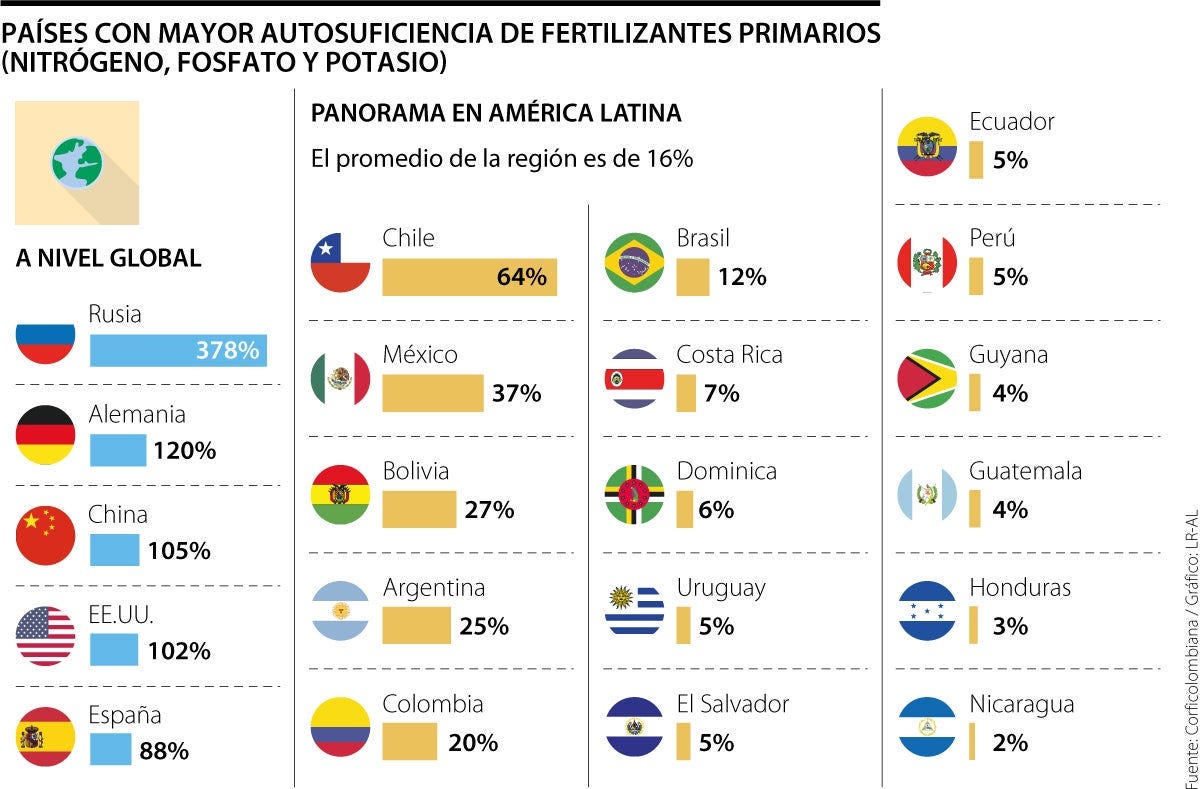Region - Fertilizer is the new political stability issue
The region's agricultural sectors are suffering due to shortages and price increases. It's changing the political landscape.
Europe will spend the winter debating its previous dependency on energy from Russia. Latin America should be rethinking its dependency on fertilizer from Russia and elsewhere outside the hemisphere.
Analysts knew this was a potential issue in February and March when Russia invaded Ukraine. Six months later, it’s increasingly relevant. Fertilizer access and price is an issue that will impact Brazil’s election, Peru’s political stability, Argentina’s economy, and Colombia’s relations with Venezuela.
Listed below are some news articles from the past month on how fertilizer shortages and price inflation are impacting political stability and geopolitics in the region. I’m highlighting this today because it’s an issue that I’m paying more attention to now and you should be as well.

The graphic in this La Republica article demonstrates that Chile is the only country in Latin America that produces even half the fertilizer it uses. Most countries are importing over 90% of their fertilizers.
Brazil’s dependency on fertilizer is a threat to global food security and a key reason that Bolsonaro has provided support to Putin throughout the invasion of Ukraine. Price inflation means Brazil’s use of fertilizers will drop this year, increasing the potential for a bad harvest later.
Venezuela’s agricultural sector, destroyed by the government’s mismanagement of the economy, is only producing at about 30% capacity, is allies with Russia, and still can’t manage to obtain enough fertilizer.
Access to fertilizer in Colombia is a driving force behind the negotiations over the Monomeros and the reestablishment of relations between Colombia and Venezuela.
President Castillo in Peru has promised to deliver fertilizer to farmers, no matter the cost to the government. Winning back support in rural areas is critical to his ability to overcome recent scandals.
A Chinese company has offered over one billion dollars in investment to produce additional fertilizer in Argentina.
The US is offering $20 million in support to Honduras and Guatemala over better use of fertilizer. That’s not going to be enough.
There is no quick solution to the increasing the supply in the region. Demand is not going away. In the short term (the rest of this year), headlines about fertilizer will continue driving politics, not something I expected at the beginning of 2022. But there is also a long term question of how Latin America can start to supply itself that goes well beyond this year.



Excellent flagging of the fertilizer issue! Kudos!